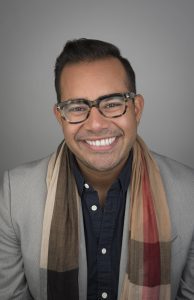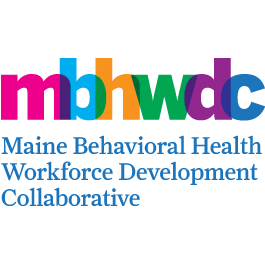Description
June 18, 2024 | 9:30-10:30am | Presenter: David Zelaya, Ph.D.
Click here for Part 1 on June 4!
Description:
While the NIH has identified sexual and gender minorities as well as racial and ethnic minorities as groups that face health disparities, what often is overlooked in research and clinical care is people living at the nexus of those two communities. Health disparities are a particular type of difference in health in which disadvantaged social groups, such as people from lower social, economic status, racial, ethnic minorities, women, sexual minorities and other groups, have persistently experienced social disadvantage or discrimination and have systematically experienced worse health or greater health risks than more advantaged groups as a result of systems of oppression. An intersectionality framework can have a meaningful impact and potentially better outcomes in behavioral health care. This presentation will offer tools for behavioral health professionals.
Learning objectives:
• Describe how systems of oppression such as racism and heterosexism create unique health disparities (e.g., addiction and behavioral health care inequities) encountered by LGBTQ+ People of Color.
• Individuals will also learn ways to increase their cultural humility in working with Queer People of Color.
Presenter:
 David Zelaya, Ph.D., Dr. David G. Zelaya (he/him/él) is an Assistant Professor at Brown University School of Public Health (SPH) within the Center for Alcohol and Addiction Studies (CAAS), Department of Behavioral and Social Sciences, a research fellow at Harvard Medical School within the Department of Psychiatry at Cambridge Hospital, and an affiliated scientist at Yale University with the Center for Interdisciplinary Research on AIDS (CIRA). Dr. Zelaya’s program of research focuses on examining health disparities, from an intersectionality and minority stress lens, among Black, Indigenous, and People of Color and sexual and gender minority communities and links to HIV risk, mental health, resilience, and alcohol use. Dr. Zelaya is the PI of a NIH-NIAAA funded K23 grant aimed to develop a behavioral health intervention for Latinx queer individuals to decrease hazardous alcohol use by targeting intersectional forms of discrimination. Clinically, he is interested in providing culturally competent behavioral health services to historically underserved communities (e.g., Spanish-speaking Latinx people; sexual and gender diverse people). Read more…
David Zelaya, Ph.D., Dr. David G. Zelaya (he/him/él) is an Assistant Professor at Brown University School of Public Health (SPH) within the Center for Alcohol and Addiction Studies (CAAS), Department of Behavioral and Social Sciences, a research fellow at Harvard Medical School within the Department of Psychiatry at Cambridge Hospital, and an affiliated scientist at Yale University with the Center for Interdisciplinary Research on AIDS (CIRA). Dr. Zelaya’s program of research focuses on examining health disparities, from an intersectionality and minority stress lens, among Black, Indigenous, and People of Color and sexual and gender minority communities and links to HIV risk, mental health, resilience, and alcohol use. Dr. Zelaya is the PI of a NIH-NIAAA funded K23 grant aimed to develop a behavioral health intervention for Latinx queer individuals to decrease hazardous alcohol use by targeting intersectional forms of discrimination. Clinically, he is interested in providing culturally competent behavioral health services to historically underserved communities (e.g., Spanish-speaking Latinx people; sexual and gender diverse people). Read more…
Contact Hours:
1 contact hour for social workers, licensed clinical professional counselors, and behavioral health professionals
1 category I contact hour for psychologists. CCSME is a pre-approved sponsor and provider of Professional Education Activities for Psychologists in Maine.
1 contact hour for Alcohol and Drug Counselors pending approval from the Maine Board of Alcohol and Drug Counselors.
1 contact hour for CHES. CCSME is a designated provider of continuing education contact hours (CECH) in health education by the National Commission for Health Education Credentialing, Inc.





